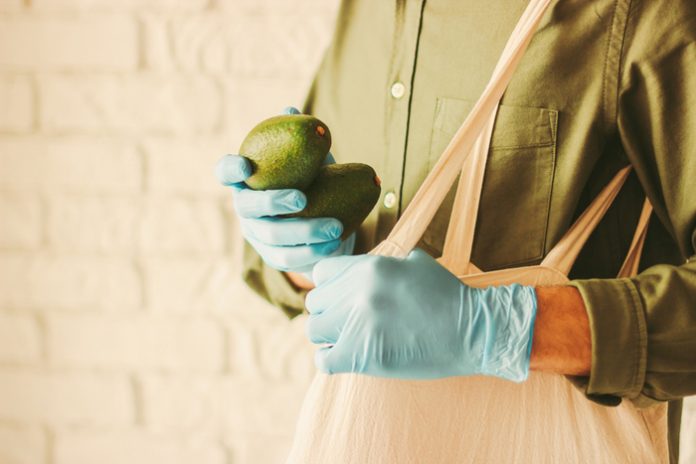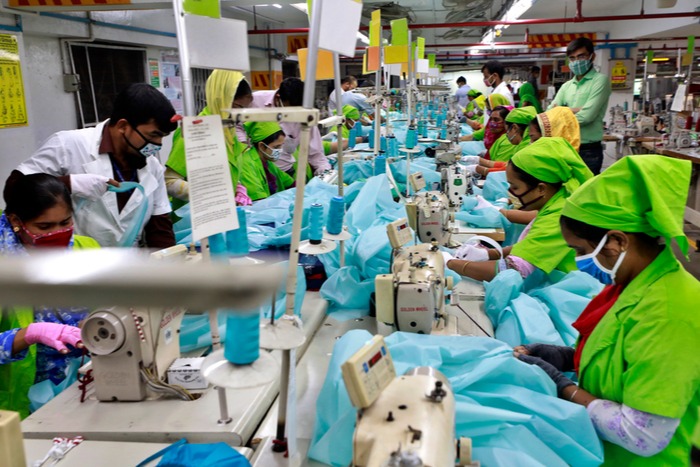

Before the coronavirus crisis struck the UK, sustainability was one of the buzzwords of retail. But last month, GlobalData predicted that Covid-19 pandemic would put sustainability concerns on hold as retailers focus on the battle for survival.
Shopping habits were starting to shift even before the pandemic – with 74 per cent of Brits saying they prefer to shop with a retailer that offers more loose fruit and vegetables. But the prioritisation of health has led to a drastic increase in sales of hand sanitisers and liquid soap in plastic bottles, with little regard for plastic-free alternatives or refills.
Despite this, Deloitte’s sustainability director Emily Cromwell believes customers are still demanding sustainability: “Employees and investors expect it. And increasingly, regulators mandate it. The drive for more sustainable practices is set to continue and the stats back it up.”
In fact, Deloitte found that 43 per cent of consumers were already actively choosing brands due to their environmental values, while a recent global survey from YouGov found that 67 per cent of Brits would support the introduction of carbon labelling on products.

“This is being compounded by the current challenges posed by Covid-19,” Cromwell said.
“There are some fundamental tenets of the Covid-19 pandemic, such as the proximity to the last financial crisis, the vast tax-payer funds and the ‘all-in-this-together’ mentality that demands responsibility and fairness from business.
“Many retailers have received praise for the efforts made to continue safeguarding and rewarding their staff. The contribution of retail’s key workers is also testament to the industry’s resilience and adaptability.”
Since the UK Government enforced a lockdown that temporarily shut down all non-essential services on the high street and shopping centres, grocers became the mainstay in peoples’ lives. Yet this means they are under increased scrutiny in how they deal with sustainability.
Cromwell argued that due to the pressures of the crisis and sudden surge in demand amid an initial wave of panic-buying, some suppliers and retailers are forced to use whatever materials are available.
“Many organisations have been striving to reduce the amount of black plastic in their ranges but if that is the only material available to them at the moment, there is little choice but to use them,” she told Retail Gazette.
“While this is occurring in pockets, consumers are unwavering in their expectations so this is likely only to be short term.”
Environment Secretary George Eustice said in early March that consumers risked accelerating the spread of coronavirus by bringing their own reusable bags into stores. It came as supermarkets urged the government to waive the 5p carrier bag charge as a potential measure against the spread of coronavirus.

Cromwell said the increase in online shopping has resulted in some interesting conundrums regarding sustainability.
“The packing system of some retailers necessitates the use of a very high number of plastic bags,” she said.
“As habits formed during lockdown will continue, issues such as carbon emissions from transport vehicles and the ways goods are transported will have to be further considered.”
Carl Saxton, founder and chief executive of veg wholesaler Wholegood, told Retail Gazette that sustainability resonated with customers more at the moment, due to Covid 19 forcing people to focus on health.
“It doesn’t matter what the latest trend is but it certainly feels like sustainability,” he said.
“It seems to be helping customers focus on health, traceability and that points to sustainable food solutions most of the time.”
Arguably, the crisis could shift consumer perceptions on sustainability, and as consumers are forced to slow down thanks to the lockdown, they would have more time to consider issues of the industry.
“If there are any positives to be found in these challenging times it’s hopefully that some of these choices and awareness in terms of sustainability will stay,” Saxton said.
“The Covid-19 impact on daily operations of fashion retailers is immense”
Rene Stampfl, vice president of retail tech firm Meepl, argued that “the impact of Covid-19 on the daily operations of fashion retailers is immense”. He highlighted how many were likely to shift from becoming more sustainable by restructuring operations in order to limit financial loss throughout 2020.
In fact, concerns were raised last month about the human impact of the crisis. The sudden cancellation of orders from fashion retailers including Arcadia, New Look, and Urban Outfitters has hit clothing manufacturing workers around the globe quite hard.
In mid-April, retailers were demanding 50 per cent price cuts from Bangladeshi manufacturers. The clothing sector has been heavily impacted by the pandemic, with exports dropping by 84 per cent in the first half of April as £2.3 billion worth of orders were cancelled or suspended, according to factory owners. Bangladesh relies on the garment industry for more than 80 per cent of its exports, with some 4000 factories employing about four million people.
H&M Group stepped up to support garment workers in Bangladesh. It is the largest buyer of Bangladeshi apparel and said it was in talks to find a solution. The Swedish retail giant said it was aware that suppliers and employees were “extremely vulnerable”. The UK’s Primark has also since stepped up to support its suppliers, although in a more limited manner given it has now online revenue whatsoever.
Camille Le Pors, corporate human rights benchmark lead at the World Benchmarking Alliance, argued that sustainability should be viewed holistically.
“It is as much about ensuring your products and activities don’t harm the environment as it is about protecting the rights of workers and other potentially affected individuals or communities,” she said.
“The retail sector must ensure that impacts on people are considered in sustainability planning and integrated into each company’s business strategy more broadly.
“Covid-19 has shone a much needed light on pre-existing issues in supply chains”
“A large proportion of retail relies on those indirectly employed through supply chains.
“These supply chains typically extend to developing countries, where protection and support is less likely to be provided to those most vulnerable, especially in times of crisis.
“Covid-19 has shone a much needed light on pre-existing issues in supply chains and the treatment of employees within them, and now is the time for us to take action to protect those that most need it.”
Retailers need to maintain relationships with their suppliers and factory workers and support them during these challenging times. With Covid-19 causing furloughs and layoffs across the industry, retailers that were transparent and took care of their workers across all aspects of their business may emerge the strongest.
In a global crisis, retailers across all sectors are forced to cut costs and shift priorities. That pressure has lead to sustainability initiatives being put on the backburner. While 2019 was dubbed the “year of sustainability”, five months into the new decade and the impact of Covid-19 may have already defined 2020.
This doesn’t mean retailers need to shelve their sustainability commitments. In fact, it’s a time for the fashion industry to reflect on their processes, as well as the toll it takes on people and the planet.
Click here to sign up to Retail Gazette‘s free daily email newsletter

